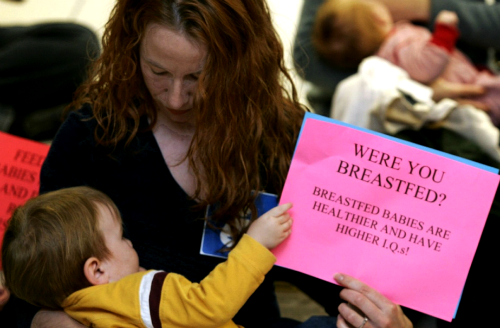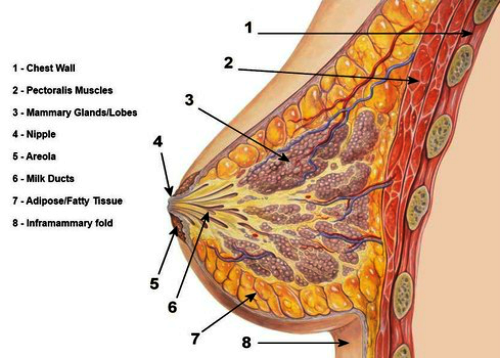“Breastfeeding a little longer could push the child’s IQ level on the higher side and reap long-term advantages for her at adulthood” – revealed a report which studied almost 3,500 new births until the 30th year of their lifetime. However, on the other hand, breastfeeding too long could turn those advantages into disadvantages. While higher education and raised income is allegedly promised for long breastfed children, those who were breastfed more than 12 months were surveyed to be average and less educated in the future, signifying that the benefits shrunk considerably in the later stages of life.
Several studies have pointed out the connection between breastfeeding and intelligence. While the long-term profits are far more arguable, breastfeeding is popular for its short-term advantages such as increased immunity from infectious disorders and low risk of premature death.
Research from Federal University of Pelotas, Brazil
Leader of the research Bernardo Lessa Horta says, “Our study provides the first evidence that prolonged breastfeeding not only increases intelligence until at least the age of 30 years, but also has an impact both at an individual and societal level by improving educational attainment and earning ability.”
Researchers were divided into 5 groups, each of which were assigned different parts of the research including testing IQ levels of surveyed children at the age of 30, recording the term of being breastfed, parents’ educational qualifications, educational and income levels of the children, genomic ancestry, family’s earnings at the time of birth, birth weight, addictions during pregnancy such as smoking, etc.
“The effect of breastfeeding on brain development and child intelligence is well established, but whether these effects persist into adulthood is less clear,” added Horta.
The results of the study initiated in 1982 and carried out throughout 3 decades in Pelotas, Brazil revealed that the difference between longer breastfed and breastfeeding deprived children was huge. It actually made a difference of 341 reais per month (1/3rd more than average income in Brazil), 4 additional IQ points, and 1 extra year of formal education.
“Previous studies from developed countries have been criticized for failing to disentangle the effect of breastfeeding from that of socioeconomic advantage, but our work addresses this issue for the first time,” Horta continued, “What is unique about this study is the fact that, in the population we studied, breastfeeding was not more common among highly educated, high-income women, but was evenly distributed by social class.”
Going further with the research, Horta and team founded that the DHAs or long-chain saturated fatty acids present in breast milk, which are necessary for brain development in children, could be a vital part as well. Horta said, “Some people say it is not the effect of breastfeeding but it is the mothers who breastfeed who are different in their motivation or their ability to stimulate the kids.”
However, with all the conclusions backed up with definite scientific evidences, the research is still exposed to controversies over those unfortunate babies who do not get enough breast milk from their mothers.
How to know if the baby is struggling with breast milk intake?
You need to watch for these signs if you’re anxious whether or not you are breastfeeding your baby with enough milk:
- After 5 days following birth, your baby wets less than 6 disposable or 8 cloth diapers
- Concentrated or dark urine similar to the color of apple juice indicates that your baby is lacking fluids
- Your baby’s body weight is reducing instead of gaining after 5 days post-birth
- Dark and small stools
- Even after “longer than 1 hour” feeding time, your baby doesn’t look completely satisfied
- Your baby falls asleep no sooner than you place her on your breast, but hassles when you take her off your breast. Basically, your baby feels lethargic all the time
- Even after nursing your baby, your breasts don’t feel softer
- While it’s completely normal for a baby to not swallow while feeding as some are “quiet feeders”, if you don’t hear your baby swallowing and find all the above signs positive, you need to consult your doctor
How to know if your baby is receiving sufficient nourishment?
- Your baby is satisfied and relaxed after being breastfed
- Your breasts now feel softened as your baby has consumed some of the milk which was making them hard
- Your baby wets only 1-2 diapers a day in the initial days while she’s receiving your thick, cherished colostrum
- Your baby gains weight week after week. First month: 5-10 ounces per week, second and third month: 5-8 ounces per week, third to sixth month: 2.5-4.5 ounces per week, sixth to twelfth month: 1-3 ounces per week
- The first month shows 3 stools a day which shade down to yellowish mustard color by the 5th day after birth. After 6 months, your baby will have normal bowel movements with 1 stool each day at least
How can breastfeeding benefit the baby and her mother?
Protection from obesity:
Breastfed babies have healthy eating habits as they grow and possess more content of leptin hormone in their body, which is important to control fat and appetite. Child obesity is increasing now a days. American Academy of Pediatrics and American Journal of Epidemiology have recommended breast milk for babies to keep them away from gaining extra weight.
Immunity to breast cancer:
Studies have shown that women who breastfed their babies longer were found to be more protective against ovarian cancer and breast cancer as lactation and breastfeeding has something to do with structural transformations of breast tissue.
Reduced risk of SIDS:
A 2009 German study revealed that breastfeeding cuts the chances of acquiring sudden infant death syndrome (SIDS) to 50%.
Control over postpartum depression and stress levels:
Oxytocin is triggered while breastfeeding. Nurturing and relaxation is primarily promoted by hormone oxytocin in women. It also helps pregnant women to have less postpartum bleeding by contracting the uterus after giving birth.
Protection from numerous diseases:
Secretory immunoglobulin A (IgA) is a vital immunity factor provided to the baby while breastfeeding, especially during the first breastfeeding which produces large amounts of colostrum. Diseases related to ear infection, stomach viruses, diabetes mellitus type 1 and 2, and respiratory disorders could very well be prevented in newborns via breastfeeding.








